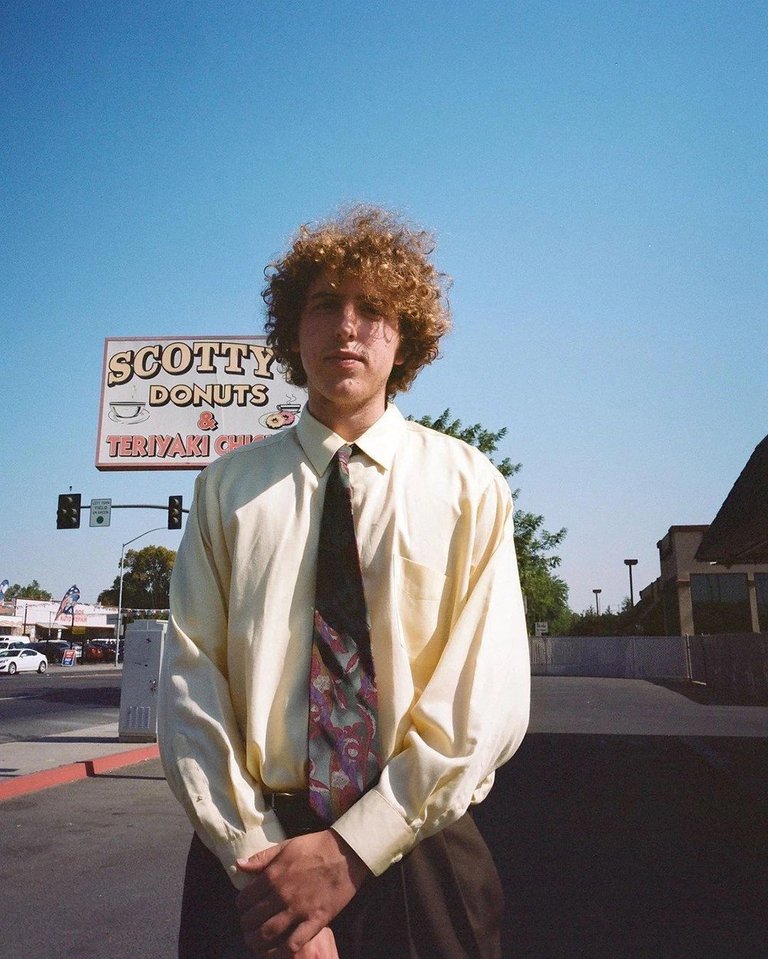
Andrew Callaghan of Channel 5
[IMG SRC: https://www.citybeat.com/arts/journalist-youtube-personality-andrew-callaghan-of-channel-5-to-host-live-show-in-cincinnati-13891113]
Andrew Callaghan's Youtube: https://www.youtube.com/@Channel5YouTube
Introduction
Poverty, Inc. paints poverty and 'being poor' in a completely separate light than what the west sees it as. On surface level, we all understand what poverty is – lack of resources. The west and the documentary can both agree on that. However, thats just about where the west stops – and thats incredibly clear. Not just through the documentary, but in our own American backyard as well. The main takeaway from Poverty, Inc. is that the aid that 3rd world countries are receiving is not helping them, but rather hurting them by barring their local markets from providing what it needs. Instead, Poverty, Inc. shows that these countries need trade and connection with the global market, not paternal handouts or "awareness."
Problem Sourcing
The role of government (and these aid orgs) is to solve societal problems (albeit, in different ways, but nonetheless, that is their goal). One thing the government, or any large aid organization can be prone to is finding the actual source of a societal problem. One thing that government, or any large aid organization is really good at is putting a bandaid on a severed limb and praising themselves for being heart surgeons. Bandaids help with lots of things, they are a basic tool to mend small injuries, however they aren't much use in mending intricacies and mechanics of a severed finger; in fact, they'd probably just get in the way. This is where the issue lies: these governments and organizations "have" to do something to help the poor because its their purpose – its how they get paid.
The Allegory of the Beyblade Battler
One day Harold has a terrible Beyblade accident and loses a finger accident and he loses his arm, but knows if he gets to the hospital it can be reattached and he'll have his finger back in full force. If Harold walks into the doctors office holding his severed finger, and the doctor gives him some bandaids, and sends him on his way, that doctor won't be a doctor for much longer. This is where government and aid orgs stray from doctors: they can give the man bandaids so long as they tell everyone else that they restored the mans finger. Meanwhile, the mans finger, while maybe attached, has no feeling or use, and is simply keeping him from enjoying the beauty that life has to offer him (beyblade battles).
Thats ridiculous, right? Not only is thats how most foreign aid works, but its also how the U.S. Government is treating impoverished U.S. citizens. If Americans (Harold) want the homeless housed (his finger reattached) and government officials do nothing about it, then they wont be government officials come next election. However if the government sets up section eight housing programs and sends money to the impoverished then, from the perspective of the non-impoverished voter, it looks like the government fixed the problem. Hooray! Yet, in many cases, the government has done little more than stifle these peoples' abilities to come out of poverty and enjoy the beauty that life has to offer them.
Andrew Callaghan and Channel 5
Andrew Callaghan is an independent journalist on YouTube. His journalism is supported by his viewers who, if interested, can donate to his Patreon for exclusive interviews and extended cuts of his documentaries. He is know for reporting on big issues in the United States such as gun control, abortion, immigration, and homelessness. Recently, he made a documentary on the homeless people that live in the drainage tunnels in Las Vegas, NV. He has done videos similar to this in Philladelphia, highlighting the drug abuse and poverty on Kensingnton Ave. In his Las Vegas documentary, his approach was quite a bit different.
He highlighted that much of the "help" that the homeless get from content creators (online and mainstream alike) is much less help than it is "awareness" and that this awareness is profitable to these creators because it is shocking content. This is no different than what many charity, NGO, or actual government organizations do; They send aid that usually has little or no positive impact (negative impact un many cases) on the individuals that need it and profit from it – this is the poverty industry.
The Vegas documentary also highlights the broader point that the aid isn't helping because the issues at hand aren't being explored in depth and being dealt with at a causal level. Callaghan's aim for the Vegas documentary was to help some of the homeless in the tunnels in a meaningful way. He asked them what they need to get out of the homelessness and get back on their feet. The overwhelming answer was a government ID – so that they could apply for jobs or get the right to use the many programs that the government has set in place.
America has an incredibly strong economic market in comparison to many countries, and the benefits of the free market and access to money is so engrained in our heads that the first thing these people wanted wasn't food, it wasn't water: it was access to the market in a safe and legal way. Its worth noting that Glenn, the individual that got his ID, was making use of a market before he got his ID. He was selling water on the Las Vegas strip – but the city of Las Vegas outlawed that, barring him from participating in a free market. And this is the perfect illustration of my point: market regulation is what has contributed to poverty, and ultimately sustains it for free individuals.